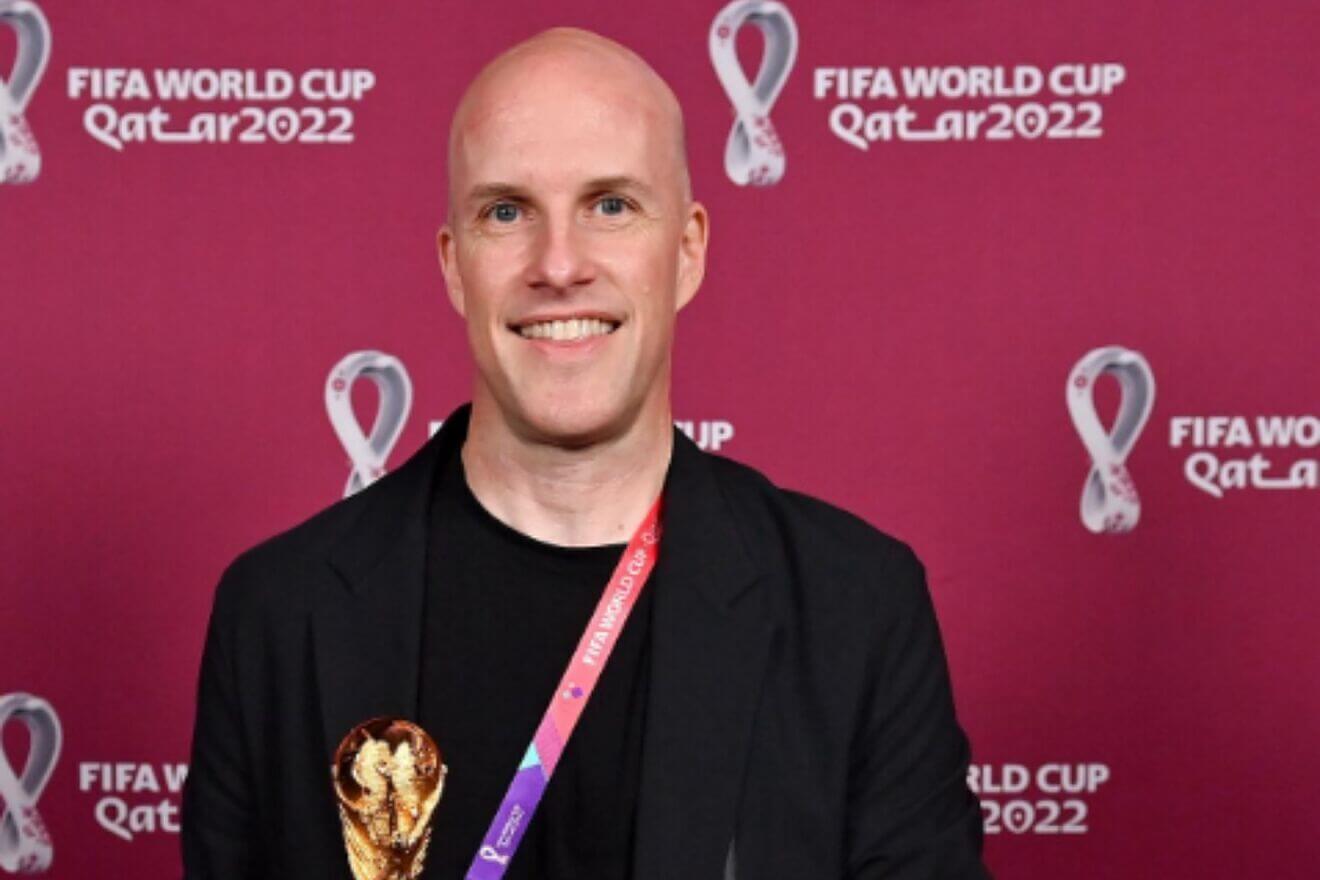Renowned American sports journalist Grant Wahl died Saturday while covering the FIFA World Cup quarter-final between Argentina and the Netherlands at the Lusail Stadium in Qatar, just days after security officials detained him for wearing a rainbow-themed t-shirt in support of the LGBTQ community.
Wahl, 49, reportedly collapsed in his seat in the section reserved for journalists. Wahl’s agent, Tim Scanlan, told Reuters that he “appeared to suffer some kind of acute distress in the start of extra time” of the match.
According to ESPN, emergency services responded very quickly and provided treatment. The World Cup’s organising committee, Qatari Supreme Committee (SC), said Wahl received “immediate emergency medical treatment” and was transferred by ambulance to the Hamad General Hospital in Doha. The SC noted that authorities are in touch with the US embassy to ensure that the body is properly repatriated.
Tonight we pay tribute to Grant Wahl at his assigned seat in Al Bayt Stadium. He should have been here. Our thoughts remain with his wife Céline, his family, and his friends at this most difficult time ❤️ pic.twitter.com/8j5pTQOrHe
— FIFA Media (@fifamedia) December 10, 2022
Josh Glancy, a special correspondent for The Sunday Times, reported that while medics arrived immediately and started administering CPR, which could indicate heart failure, the section Wahl was seated in did not have a defibrillator.
“At this billion dollar state-of-the-art stadium, which has a VIP suite so lavish it includes a bedroom, which will host the World Cup final, why was there no defibrillator to hand?” he asked, adding, “Many minutes passed and we kept expecting it to come. But it never did.”
Furthermore, Wahl’s brother, Eric, took to Instagram to accuse the Qatari government of killing his brother. Claiming that his brother received death threats for wearing the rainbow-themed t-shirt, Eric said, “I do not believe my brother just died. I believe he was killed, and I’m just begging for any help.”
Absolutely bone chilling stuff
— JACK SETTLEMAN (@jacksettleman) December 10, 2022
Soccer journalist Grant Wahl who was kicked out of a stadium in QATAR for this shirt has reportedly collapsed and passed away during the Argentina game today
His brother says on Instagram that Grant was fully healthy & believes there’s foul play pic.twitter.com/t47C2XfuVl
On 6 December, Wahl noted in his Substack newsletter that his body “broke down” due to little sleep and high stress. He said he suffered from a cold and had “pressure and discomfort” in his upper chest. “I went into the medical clinic at the main media centre today, and they said I probably have bronchitis,” he wrote.
On 21 November, Wahl revealed on Substack that security guards had prevented him from entering the Al Rayyan stadium to cover the US-Wales match because he was wearing a t-shirt supporting the LGBTQ community. One of the guards told him that he had to change his clothes in order to be granted entry. Security forces detained Wahl for 25 minutes.
NEW: World Cup Daily, Day 25. They just don't care. Qatari World Cup organizers don't even hide their apathy over migrant worker deaths, including the most recent one.https://t.co/WEKoMdSm3J
— Subscribe to GrantWahl.com (@GrantWahl) December 8, 2022
A day before his death, Grant also expressed his support for migrant workers in Qatar, accusing the government of neglecting the rights of migrant workers who died during the construction of World Cup infrastructure. “They just don’t care. Qatari World Cup organizers don't even hide their apathy over migrant worker deaths,” referring to SC CEO Nasser Al Khater’s refusal to take responsibility for the recent death of a migrant worker.
It is estimated that almost 6,500 migrant workers from India, Pakistan, Nepal, Bangladesh, and Sri Lanka died in Qatar since the country won the rights to host the FIFA World Cup in 2010. Doha, which had reportedly engaged in massive corruption to secure hosting rights, has done little to address the plight of migrants.
You can see it on TV, where migrant labor is portrayed as moronic, greedy. You can see it on the streets, where Africans are called "slave." I saw it in the eyes of young desi workers, who asked me how I could possibly afford to stay in a hotel.
— ahmed ali akbar (@radbrowndads) December 8, 2022
It's a racialized labor system.
According to human rights groups, Qatar and FIFA have refused to compensate migrant workers and their families for “abuses” suffered while constructing infrastructure for the World Cup. Doha has also repeatedly refused to create a compensation fund for migrant workers killed or injured on its massive infrastructure projects.
Human rights groups like Amnesty International and Human Rights Watch have demanded that FIFA and Qatar establish a $440 million fund for workers, equivalent to the World Cup prize money.
Controversy has also erupted over the treatment of the LGBTQ community in Qatar, where same-sex relations are criminalised. For instance, homosexuality could include death by stoning as a possible maximum penalty. The country has banned LGBTQ symbols from stadiums and the ‘One Love’ armband, which the captains of several football teams, including Germany and England, planned to wear during their matches. However, the move was cancelled at the last minute owing to a ban by FIFA and threats by authorities to penalise the players.

